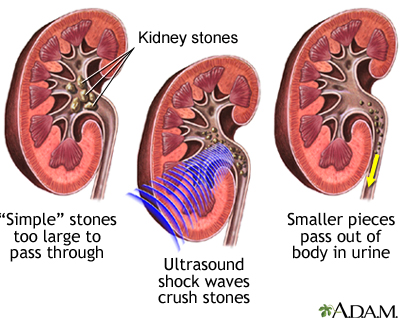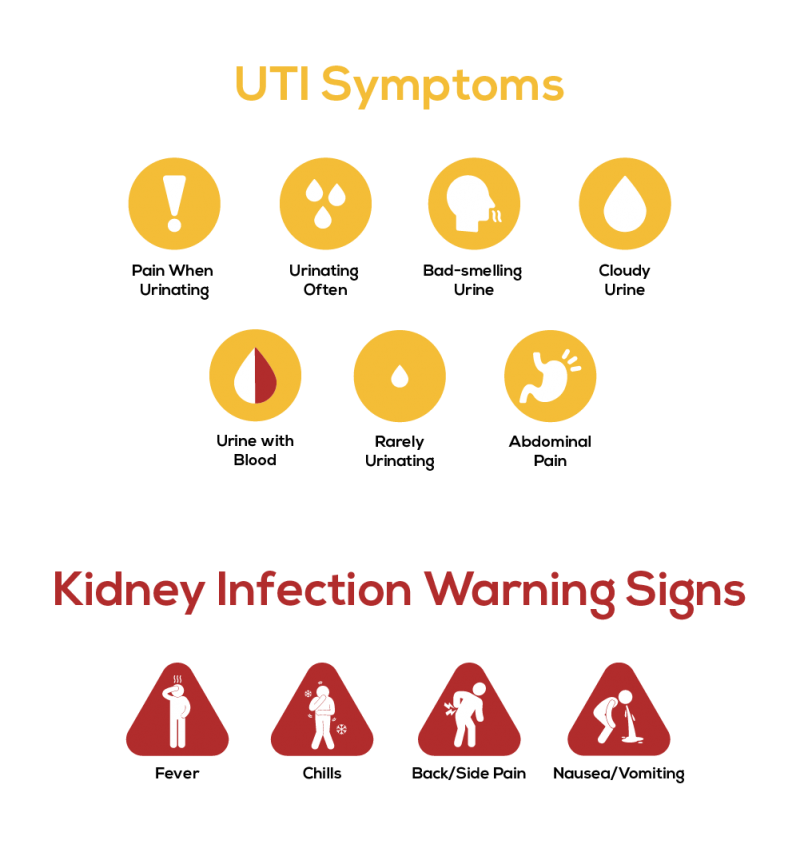Comparing Kidney Stones vs UTI: What You Need to Understand About Their Influence On Wellness
Comparing Kidney Stones vs UTI: What You Need to Understand About Their Influence On Wellness
Blog Article
Comprehending the Key Distinctions In Between Kidney Stones and Urinary System System Infections: A Comprehensive Summary for Individuals
Recognizing the differences in between kidney stones and urinary system system infections (UTIs) is essential for individuals that might be experiencing comparable signs and symptoms yet encounter vastly different health and wellness difficulties. While both problems can materialize pain in the reduced abdominal area or back, their hidden reasons, analysis approaches, and treatment protocols split considerably. A nuanced understanding of these distinctions not only help in accurate self-assessment but also informs conversations with doctor. As we explore these crucial elements, it ends up being clear that recognizing the special features of each condition can profoundly influence person end results. What may be the very best approach to addressing these distinctions?
Review of Kidney Stones
The formation of kidney stones, a typically devastating and unpleasant problem, emphasizes the critical significance of preserving kidney wellness. The primary types of kidney stones include calcium oxalate, calcium phosphate, uric acid, struvite, and cystine stones, each with distinctive reasons and risk elements.
A number of aspects add to the development of kidney stones. In addition, metabolic disorders and certain medical conditions may incline people to stone development.
Signs of kidney stones can consist of extreme flank discomfort, nausea or vomiting, and hematuria, which usually motivate immediate clinical examination. Therapy options vary, ranging from enhanced liquid consumption and nutritional alterations to medical interventions such as lithotripsy or surgical elimination, depending on the dimension and area of the stones. Recognizing these aspects is essential for reliable avoidance and administration.
Review of Urinary Tract Infections
Urinary system tract infections (UTIs) represent an usual yet considerable health problem, impacting millions of people yearly. These infections take place when germs enter the urinary system, that includes the kidneys, ureters, bladder, and urethra. Most of UTIs are brought on by Escherichia coli, a sort of bacteria commonly discovered in the gastrointestinal system. While UTIs can impact anyone, they are specifically prevalent in females because of anatomical distinctions that facilitate microbial entrance.
The danger variables for developing a UTI consist of sexual task, certain kinds of birth control, urinary retention, and a history of previous infections. Uncomplicated UTIs are normally restricted to the bladder and are extra usual in healthy and balanced people, while complicated UTIs may involve the kidneys and occur in those with underlying health issues.
Prompt diagnosis and therapy are vital to stop issues, such as frequent infections or kidney damages (Kidney Stones vs UTI). Normally, UTIs are treated with anti-biotics, and preventative actions can be used for those with constant events
Usual Signs Comparison
Signs and symptoms of urinary system infections and kidney stones can often overlap, leading to complication in diagnosis. In comparison, kidney stones tend to trigger extreme, sharp pain that radiates from the back to the reduced abdominal area and groin, typically described as colicky discomfort.
In addition, UTIs may be accompanied by fever and cools, specifically in more severe situations, while kidney stones can lead to queasiness and throwing up due to extreme pain. While discomfort during peeing is a characteristic of UTIs, kidney stones typically offer with even more intense pain episodes, which may come and go.
Diagnosis Techniques
Exactly how can medical care professionals accurately separate in between kidney stones and urinary tract infections? The diagnostic procedure begins with a thorough medical history our website and a thorough review of the patient's signs. Medical professionals commonly execute a checkup, which may expose tenderness in the abdomen or flank region, guiding the analysis path.
Lab tests play a critical function in distinguishing in between these 2 conditions. Kidney Stones vs UTI. A urinalysis can identify the presence of blood, crystals, or microorganisms, which are a measure of either condition. In cases of urinary system infections, the urinalysis may show a substantial visibility of white blood cells and nitrites, while kidney stones might provide with particular crystals
Imaging studies, such as stomach ultrasound or computed tomography (CT) scans, are important for visualizing kidney address stones. These imaging methods allow healthcare providers to analyze stone size, area, and prospective blockages in the urinary system tract. On the other hand, urinary system tract infections generally do not call for imaging unless issues are thought.
With each other, these analysis techniques equip healthcare specialists to properly differentiate and detect between kidney stones and urinary system system infections, ensuring that individuals get appropriate treatment and management.
Therapy Options and Avoidance
While both kidney stones and urinary system tract infections (UTIs) call for timely treatment, their monitoring methods differ dramatically.
The treatment for kidney stones typically involves discomfort administration, hydration, and in some situations, clinical procedures such as extracorporeal shock wave lithotripsy (ESWL) or ureteroscopy to remove or break down stones. People are frequently advised to raise fluid intake to assist in stone flow and decrease reoccurrence. Dietary alterations might also be required, relying on the stone kind.
On the other hand, UTIs are mainly treated with anti-biotics to eradicate the bacterial infection. The particular antibiotic recommended relies on the bacteria identified and local resistance patterns. Extra procedures, such as raised liquid consumption and urinary system anesthetics, might help minimize signs.
Avoidance methods vary also; for kidney stones, maintaining adequate hydration and adhering to nutritional constraints can be efficient. For UTIs, precautionary methods include proper health methods, urinating after intercourse, and perhaps preventative prescription antibiotics for frequent infections. Comprehending these treatment and prevention modalities is essential for reliable monitoring and to lessen the danger of complications related to both problems.
Final Thought

Understanding the distinctions in between kidney stones and urinary system tract infections (UTIs) is vital for people who may be experiencing similar signs yet encounter significantly different health and wellness difficulties. The key kinds of kidney stones include calcium oxalate, calcium phosphate, uric acid, struvite, and cystine stones, each with unique reasons and threat elements.

Report this page